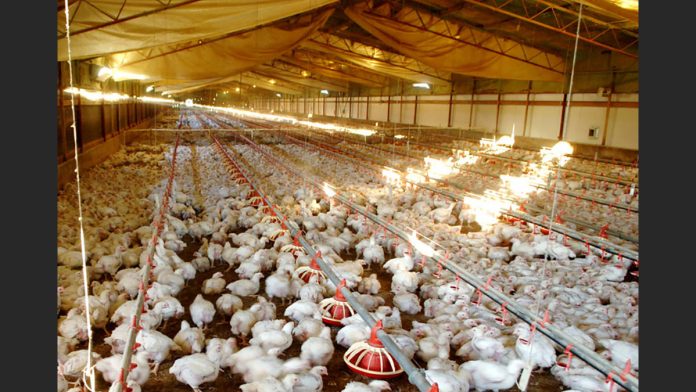KUALA LUMPUR – More closed-house poultry farms are needed as a long-term measure to boost the production of chicken in the country.
Universiti Putra Malaysia (UPM) Institute of Plantation Studies director, Prof Dr Shaufique F. Sidique said so far, more than 30 per cent of closed-house poultry farm enterprises were operating in the country.
He said the closed-house farms, equipped with a temperature and humidity control system, were suitable for livestock following the unpredictable weather conditions, besides helping in avoiding flies and odour pollution.
“The chickens need to be in suitable and comfortable temperatures to avoid contracting any disease,” he said when contacted by Bernama on the issue of shortage of fresh chicken supply in the market.
He said the increase in closed-house poultry farms would help address the shortage of chicken supply in the country due to various factors including the increase in corn price, the depreciation of the ringgit and unpredictable weather conditions.
Meanwhile, Institute of Tropical Agriculture and Food Security professor, Datuk Dr Zulkifli Idrus is also of the same opinion that closed-house poultry farms would also increase chicken breeding as well as control the spread of diseases.
“In Malaysia, chickens are easily susceptible to diseases, one of them being the Newcastle disease virus or plague virus, and this virus can attack the chicken’s respiratory, digestive and nervous systems.
“Breeders already know the benefits of closed-house poultry farms. However, they may not be able to provide these due to the high cost involved. Therefore, to achieve 100 per cent closed-house farms in the country, they need to have sufficient financial resources,” he said.
On another issue, UPM deputy dean (Academic and Student Affairs), Faculty of Agriculture, Assoc Prof Dr Juwaidah Sharifuddin said the move to abolish import permits (AP) on foodstuffs has had a positive impact on consumers.
“With the move, we will have an immediate impact in terms of increased food imports, lower food prices and increased consumer access to food,” she said on Bernama’s ‘Selamat Petang Malaysia’ programme entitled “Rationale for the Abolition of Food Import Permits”.
Meanwhile, a chicken seller at the Selayang Daily Market, Muhammad Nor Azelan Mahmood, 43, who when met, said the current chicken supply was insufficient that he had to make adjustments (cut supplies) to enable consumers to buy the chickens they needed.
Abdul Talib Razali, 56, a chicken and meat trader at the Datuk Keramat wet market, here, said the suppliers also had to limit the amount of chicken to be sold to traders.
“If I used to obtain 200 kilogrammes of chicken a day, now I only receive half of that amount because suppliers also have to supply chicken to other traders,” he added.













